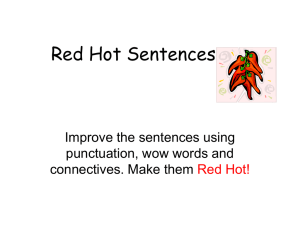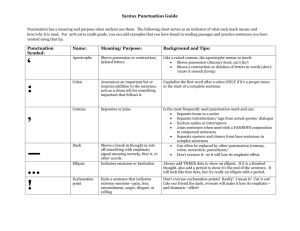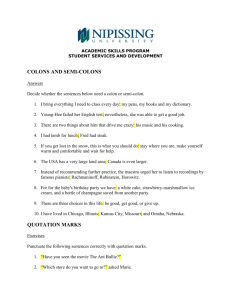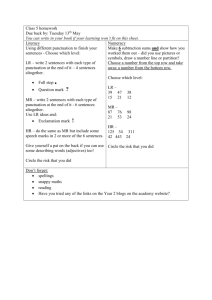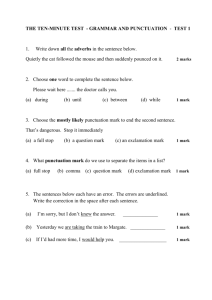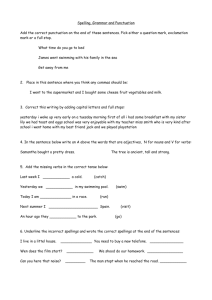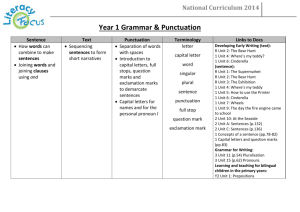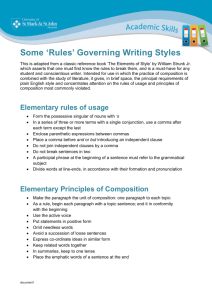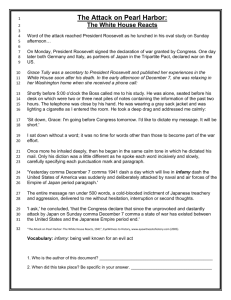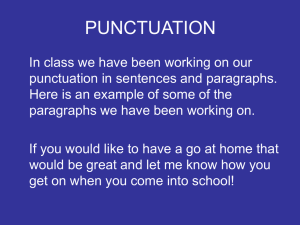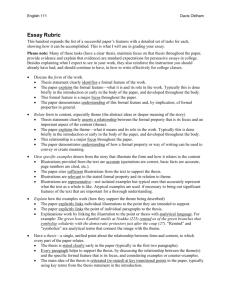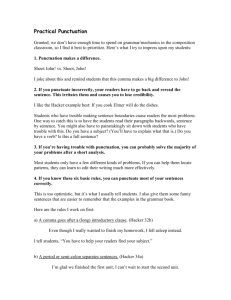Grammar Rules
advertisement
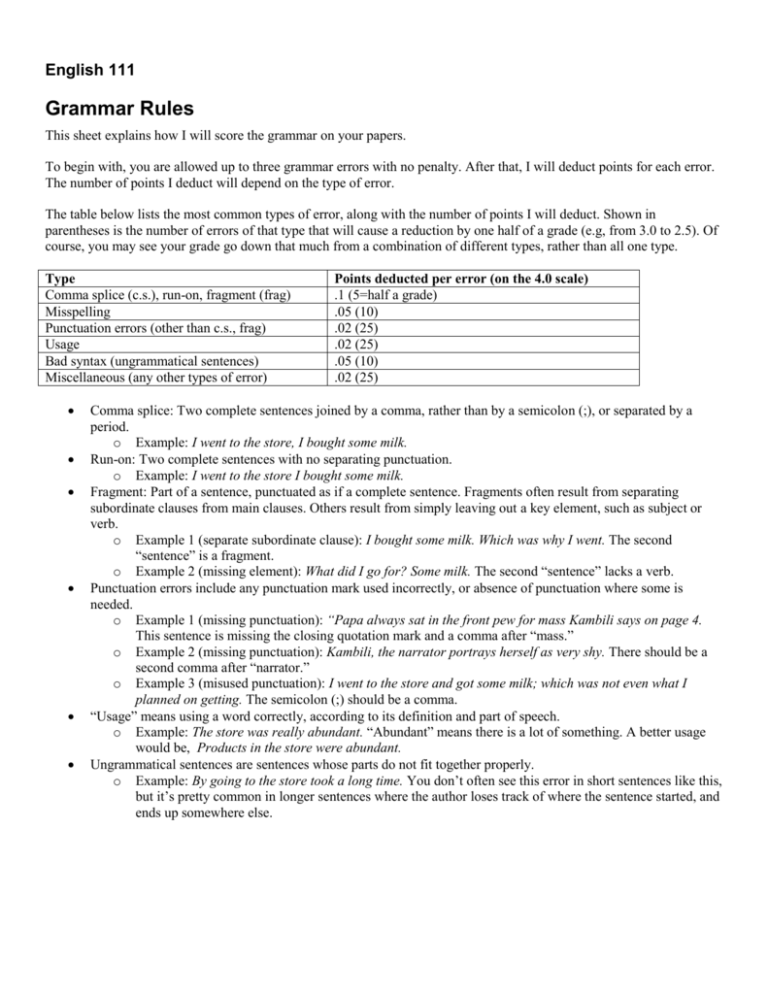
English 111 Grammar Rules This sheet explains how I will score the grammar on your papers. To begin with, you are allowed up to three grammar errors with no penalty. After that, I will deduct points for each error. The number of points I deduct will depend on the type of error. The table below lists the most common types of error, along with the number of points I will deduct. Shown in parentheses is the number of errors of that type that will cause a reduction by one half of a grade (e.g, from 3.0 to 2.5). Of course, you may see your grade go down that much from a combination of different types, rather than all one type. Type Comma splice (c.s.), run-on, fragment (frag) Misspelling Punctuation errors (other than c.s., frag) Usage Bad syntax (ungrammatical sentences) Miscellaneous (any other types of error) Points deducted per error (on the 4.0 scale) .1 (5=half a grade) .05 (10) .02 (25) .02 (25) .05 (10) .02 (25) Comma splice: Two complete sentences joined by a comma, rather than by a semicolon (;), or separated by a period. o Example: I went to the store, I bought some milk. Run-on: Two complete sentences with no separating punctuation. o Example: I went to the store I bought some milk. Fragment: Part of a sentence, punctuated as if a complete sentence. Fragments often result from separating subordinate clauses from main clauses. Others result from simply leaving out a key element, such as subject or verb. o Example 1 (separate subordinate clause): I bought some milk. Which was why I went. The second “sentence” is a fragment. o Example 2 (missing element): What did I go for? Some milk. The second “sentence” lacks a verb. Punctuation errors include any punctuation mark used incorrectly, or absence of punctuation where some is needed. o Example 1 (missing punctuation): “Papa always sat in the front pew for mass Kambili says on page 4. This sentence is missing the closing quotation mark and a comma after “mass.” o Example 2 (missing punctuation): Kambili, the narrator portrays herself as very shy. There should be a second comma after “narrator.” o Example 3 (misused punctuation): I went to the store and got some milk; which was not even what I planned on getting. The semicolon (;) should be a comma. “Usage” means using a word correctly, according to its definition and part of speech. o Example: The store was really abundant. “Abundant” means there is a lot of something. A better usage would be, Products in the store were abundant. Ungrammatical sentences are sentences whose parts do not fit together properly. o Example: By going to the store took a long time. You don’t often see this error in short sentences like this, but it’s pretty common in longer sentences where the author loses track of where the sentence started, and ends up somewhere else.
